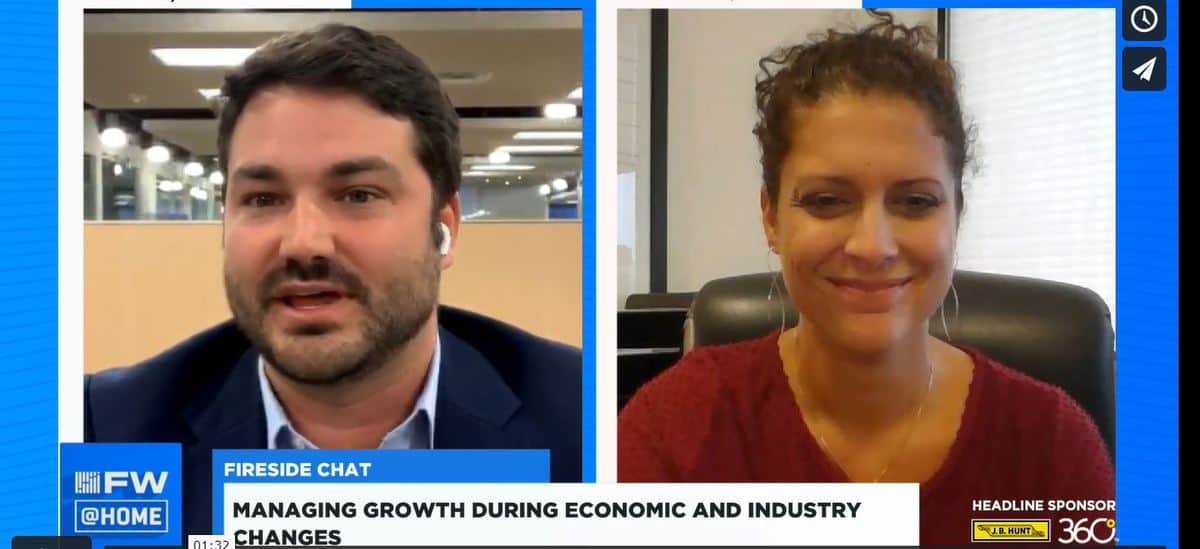Listening to Trinity Logistics President Sarah Ruffcorn it is clear that any challenge — whether a merger or keeping up with changes in logistics technology — can be addressed by managing relationships above all else.
“This business really hinges on relationships and trust,” Ruffcorn said in a Fireside Chat with Jordan Graft, president of TriumphPay, during the FreightWaves Live @HOME virtual conference. “Focus on that. Then partner that up with technology or assets, or whatever that tends to look like for the shipper and the carrier. “
“There’s still this whole human component that comes into play, especially when things go wrong.”
Trinity, a $550 million Top 20 freight broker, merged with $3.5 billion Burris Logistics in 2019. Both are Delaware-based companies located 23 miles apart..
“The Burris family is very similar to the Banning family,” Ruffcorn said. “The two families had been friends for generations. We all live in the same small state, in the same communities, so we all know each other.”
Pre-merger competition
Burris and Trinity cooperated on technology projects before the formal merger. Burris had a limited brokerage business, BFM Freight Management. Trinity now has 17 warehouses nationwide, providing storage for some shippers and expanding its presence in e-commerce.
“It’s been a transition as we learn more about their service offerings and they learn more about the brokerage industry,” Ruffcorn said. “It has been a lot for them to learn about us and us to learn about them. But it’s been a great fit. From the stories I hear, I think that’s pretty unusual.
“Being a part of the Burris family has helped us open up the conversation to be a little bit bigger about the whole supply chain, not just about transportation. That’s been huge.”
The two amicably discuss problem solving for Trinity shipping customers.
“I think our tagline sums it up: ‘We deliver people-centric freight solutions.’ That can mean a lot of different things to people. Every shipper has different needs depending on their industry and their particular supply chain.”
Technology cements customer relationships
Ruffcorn sees evolving technologies helping cement its customer relationships.
“Technology is our world now. Why would we expect our shippers and our carriers to be any different? I see that whole technology play as ‘How can we enhance the experience? How can we help make their lives better and easier through what we’re offering with technology?’”
Combining transparency, speed of information, data and reporting while focusing on individual needs is Trinity’s recipe for success.
For technology, that means outside purchases as well as building technology in house.
“Even when I started here 18 years ago, we did buy technology and then we always ended up buying the source codes and bringing it in house soon after,” Ruffcorn said. “It’s always been a very big part of who we are and what we do. There are times when we almost think of ourselves as a technology company first over a logistics company.”
The proprietary nature of Trinity’s technology is increasingly important, she said.
“We do program all of our own software for our operating system,” Ruffcorn said. “Of course we still use off-the-shelf and commercial products. Our team has done a great job at really leveraging where it makes sense to build versus buy. It really comes back to the experience for the shippers, the carriers and our team members.”
Related articles:
FreightWaves 3PL Summit: Crisis underscores wisdom of early tech investments
Burris Logistics and Trinity Logistics merge
Trinity Logistics joins alliance to standardize blockchain technology in logistics










